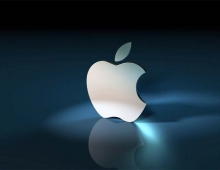
iTunes Remains Top Music Download Service
Even after 10 years of operation, Apple's iTunes store leads
the market in digital music downloads, although Amazon.com's
AmazonMP3 has grabbed more than a fifth of the market.
According to an industry study released on Tuesday by The
NPD Group, with a fourth quarter (Q4) 2012 unit share of the
paid music download market reaching 63 percent, Apple
dominated the market for paid music downloads, followed by
AmazonMP3 at 22 percent. Eight out of ten digital music
buyers downloaded their tracks and albums from Apple's
iTunes store in Q4 2012.
Amazon launched the Kindle Fire tablet in 2011, and last year the company rolled out larger versions of the device to compete more with Apple's iPad.
Amazon is using the Kindle Fire to try to sell more digital goods, such as music, video, apps and games, where iTunes leads.
Amazon also sells digital music without DRM, a strategy that has boosted the demand for Amazon's music as consumers can listen to music on any devices, including Apple devices like iPods and iPhones.
According to NPD's data, 44 million Americans bought at least one song track or album download last year. That number has remained relatively stable over the past three years, despite the rapid growth of Pandora and other music-streaming options. NPD estimates that average per-buyer spending on music downloads increased 6 percent, year over year, due largely to increases in music purchasing by teens, along with an increase in the number of consumers purchasing both single song tracks and full albums.
"Since the launch of Apple's iTunes store, digital music downloads have become the dominant revenue source for the recorded music industry and iTunes continues to be the dominant retailer," said Russ Crupnick, senior vice president of industry analysis at NPD. "There's a belief that consumers don't need to buy music because of streaming options, when in fact streamers are much more likely than the average consumer to buy music downloads."
One third (38 percent) of U.S. consumers surveyed reported that it is still important to own music, and 30 percent believe that listening to albums is important. Among consumers who listened to music on Pandora and other free music-streaming services, 41 percent reported that owning music was important to them; in fact, many free streamers attributed buying more downloads to their discovery on a radio or via an on-demand service.
Amazon launched the Kindle Fire tablet in 2011, and last year the company rolled out larger versions of the device to compete more with Apple's iPad.
Amazon is using the Kindle Fire to try to sell more digital goods, such as music, video, apps and games, where iTunes leads.
Amazon also sells digital music without DRM, a strategy that has boosted the demand for Amazon's music as consumers can listen to music on any devices, including Apple devices like iPods and iPhones.
According to NPD's data, 44 million Americans bought at least one song track or album download last year. That number has remained relatively stable over the past three years, despite the rapid growth of Pandora and other music-streaming options. NPD estimates that average per-buyer spending on music downloads increased 6 percent, year over year, due largely to increases in music purchasing by teens, along with an increase in the number of consumers purchasing both single song tracks and full albums.
"Since the launch of Apple's iTunes store, digital music downloads have become the dominant revenue source for the recorded music industry and iTunes continues to be the dominant retailer," said Russ Crupnick, senior vice president of industry analysis at NPD. "There's a belief that consumers don't need to buy music because of streaming options, when in fact streamers are much more likely than the average consumer to buy music downloads."
One third (38 percent) of U.S. consumers surveyed reported that it is still important to own music, and 30 percent believe that listening to albums is important. Among consumers who listened to music on Pandora and other free music-streaming services, 41 percent reported that owning music was important to them; in fact, many free streamers attributed buying more downloads to their discovery on a radio or via an on-demand service.





















